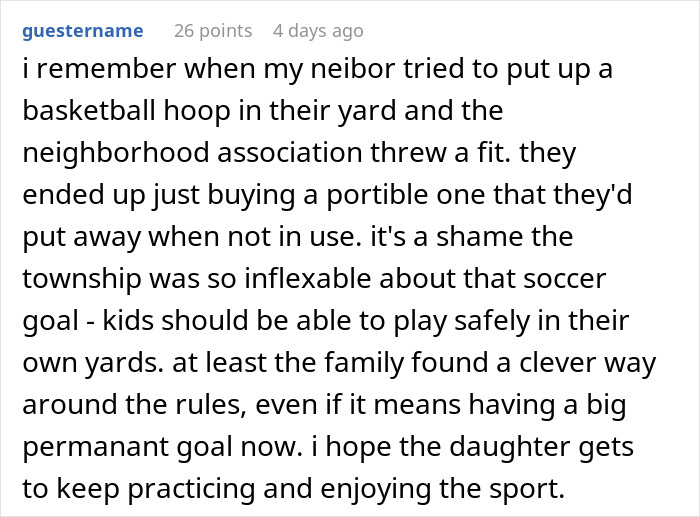Children spend less and less time outside as the years go by. Few kids nowadays know the terror and shame of going to the grumpy lady next door to retrieve your ball that has fallen into her peony garden. Save The Children reported in 2022 that only one in four children regularly play outside. One of the reasons they don’t is that parents fear neighbors complaining about it.
However, there are ways to deal with such prickly neighbors, as is evident in this story. The neighbor here decided to complain about a small soccer goal in a family’s yard where the daughter played. And after two visits from the police, the family had enough. They decided to comply with the neighbor’s demands maliciously and opted to fight petty with pettiness.
Dealing with neighbors can be difficult, especially when it’s them complaining about kids playing outside

Image credits: Jonas Jacobsson / unsplash (not the actual photo)
In this story, a neighbor decided to complain about a kid’s soccer goal being a “semi-permanent structure”
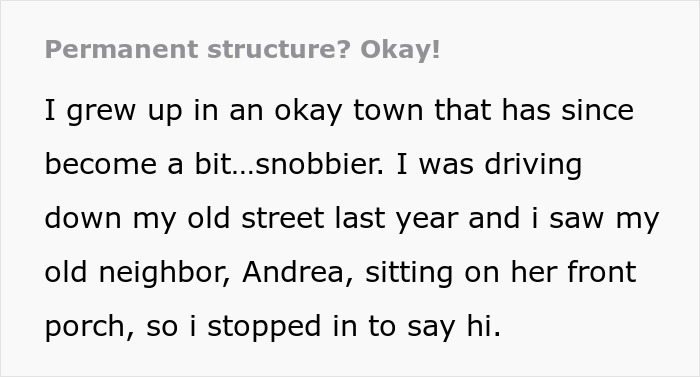
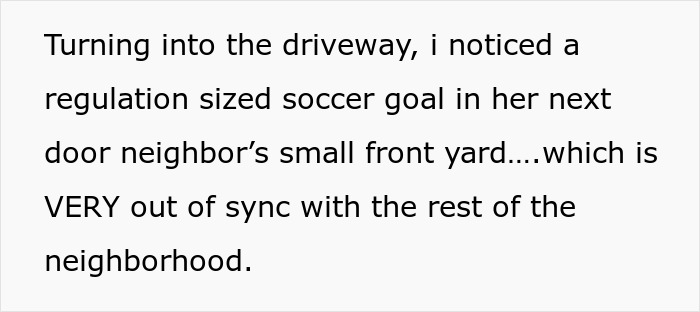
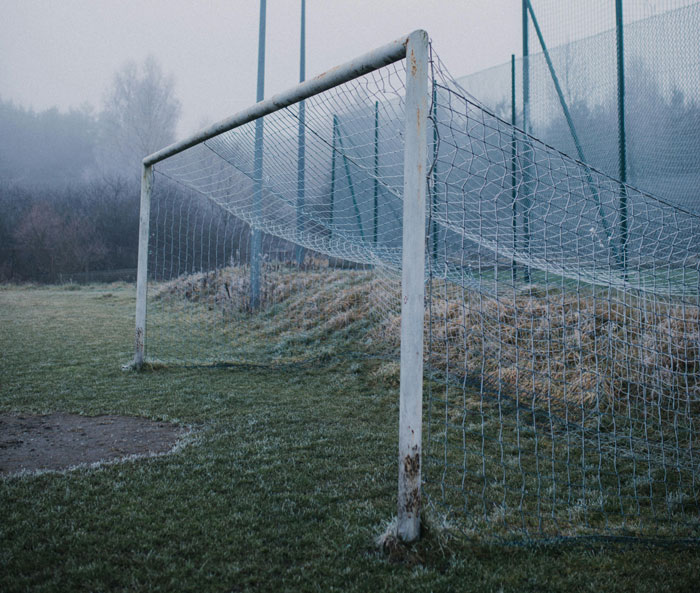
Image credits: KoolShooters / pexels (not the actual photo)
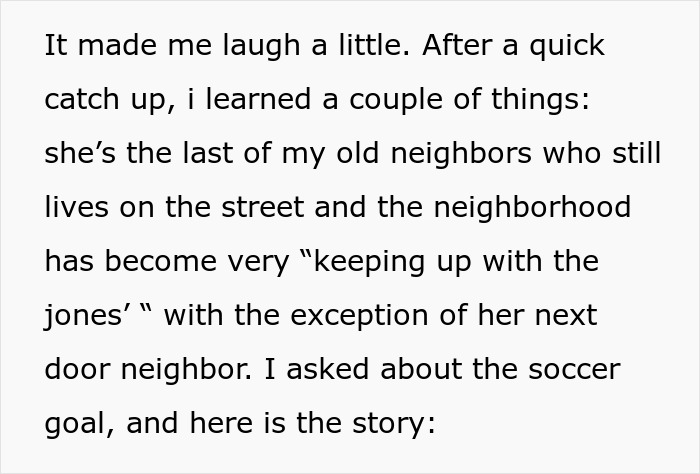
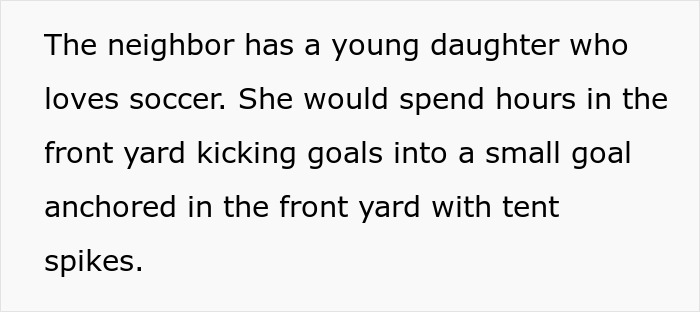
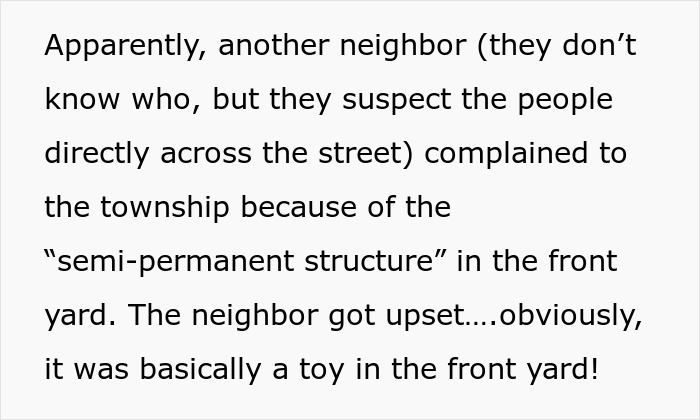

Image credits: Md Mahdi / unsplash (not the actual photo)
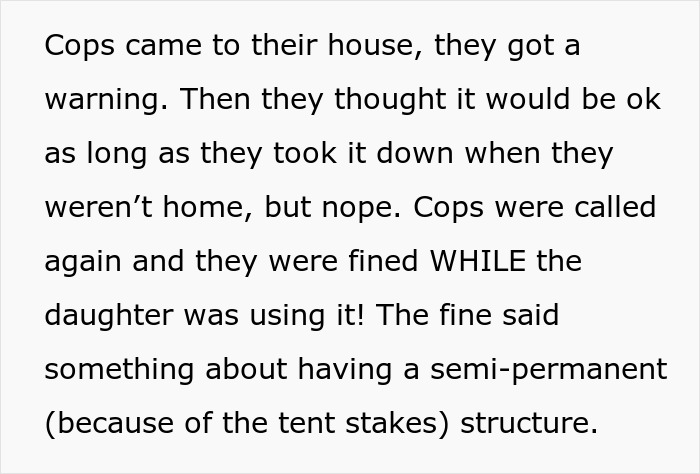


Image credits: cottonbro studio / pexels (not the actual photo)
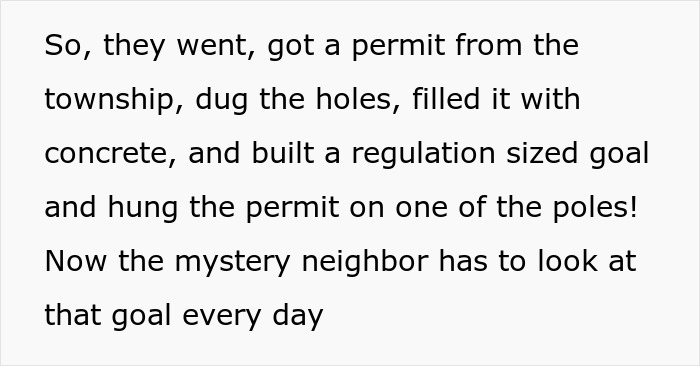
Image credits: hankiepanki
The author gave more info in the comments


Kids are spending less and less time outside, and it’s negatively impacting their physical and mental wellbeing
Back in baby boomer times, 71% of children used to play outside at least a few times a week. Today, that number has shrunk three times. Playing outside is important for kids for several reasons. Physical health is perhaps the most pressing one. For example, 80% of children in the UK don’t get the recommended daily physical activity, and 20% leave primary school obese.
There’s also the social aspect: playing outside is a great way for kids to socialize. When they’re not at school, children lack opportunities to socialize in real life. Experts say that face-to-face socialization teaches children about reading non-verbal cues, eye contact, and body language. And that’s how kids used to socialize back in the day – while playing together in the street.
Professor of Child Psychology at the University of Exeter Helen Dodd also told Save The Children that not playing outside robs children of developing independence and problem-solving skills. “Some consequences of this reduced level of playing out could be on friendship development, social skills, freedom, independence and negotiation of shared spaces. We are also concerned that these changes to children’s experiences could have an adverse effect on their mental health,” she said.
We might be going back to the “No noisy children, please” era
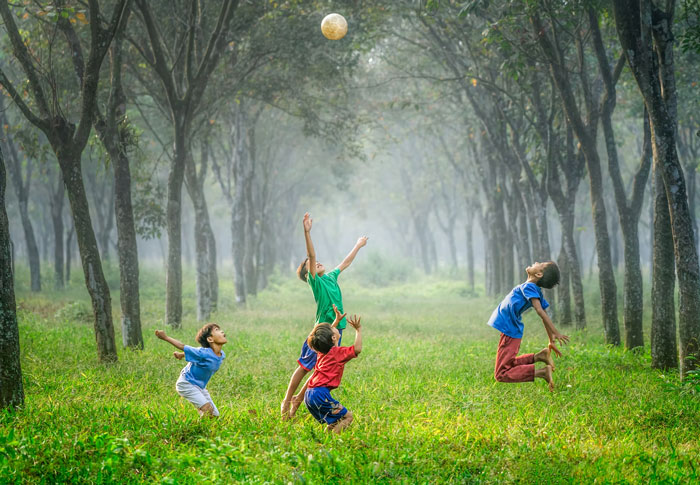
Image credits: Robert Collins / unsplash (not the actual photo)
Remember the saying “Children should be seen and not heard?” It essentially means we want kids to behave like adults: be calm, quiet, and well-behaved. The truth is that this goes against a child’s nature. Children are supposed to be messy, loud, and playful. So why are children spending less and less time outside? Are screens the only ones to blame?
There are several different culprits: traffic, parents, and neighbors. In the OnePoll research for Save The Children, 25% of children said they were told by either a parent or a neighbor to stop playing in the street. 30% said an adult told them to stop making noise outside. In fact, even parents face warnings from authorities or threats from neighbors.
Alice Ferguson, Associate and Board Director of the UK-based not-for-profit Playing Out, told The Guardian how this is becoming a dangerous trend. “There is a serious crisis in children’s physical and mental health in this country, yet some people still want to stop children having the time and space to play outside together. We need to accept that children live in communities and have a right to be seen and heard. A bit of noise from children playing outside is a small price to pay for a happier, healthier generation.”
Parents also might have become more fearful to let their children roam around in the street unsupervised. However, experts call this fear paradoxical, as there has never been a safer time for growing up, at least in the U.S. They say this fear has to do with the unprecedentedly easy access to news. Parents only think that their kids are in danger while playing in the street. But, in reality, there has never been a safer decade.
Mutual respect between neighbors is a must for a good neighborly relationship
Living with next-door neighbors is tricky, but such is life in a community. In a previous interview for Bored Panda, etiquette expert Lisa Mirza Grotts said how being a good neighbor requires politeness, sincerity, and discretion. “Living in communal spaces is the definition of shared space, meaning yours, mine, and ours. We live in a ‘me’ world; we need to change our mindset to ‘we,'” she told us back then.
Formal complaints and calling the police should be the last resort. It’s not entirely clear from this story what exactly was the neighbor’s problem with the kid soccer goal. As the author mentions, it was “basically a toy.” Ultimately, relationships between neighbors should be based on mutual understanding and communication, and not on petty passive-aggressive complaints.
“If you treated your neighbor – the person you see day in and day out – with disrespect, you might not get much cooperation from them,” Grotts told us back then. “Having said that, respect is a two-way street. All of our choices have power, which means being tactful is the right choice when it comes to neighbors, especially those living in cities (close quarters).”
People praised the family for handling the feud with the petty neighbor this way







